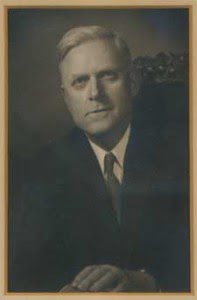A Matter of Separation
Can two walk together, except they be agreed?—Amos 3:3, KJV.
One of the distinctive marks of the Bible Presbyterian denomination, which began in 1938, was the emphasis on separation. Not only were they properly careful to avoid anything that was sinful, but they understood Amos 3:3 to mean that they should not have anything to do with those who might claim the name of Christian, but whose life or doctrine did not match up with that claim.
The late Dr. George Hutchinson, in his wonderful book, The History behind the R.P.C.E.S., tells the story of how this emphasis on separation worked out in one particular instance:—
The testimony of separation continued to be an issue in the Bible Presbyterian Church. A representative, indeed classic, example is the case of the Bible Presbyterian Church of Charlotte, North Carolina. The case is complicated and only the barest outline of it can be presented here. Originally Southern Presbyterian, the church had become Bible Presbyterian under the leadership of the Rev. E.A. Dillard. [pictured at right]. Later when Dillard took a leave of absence to work with alcoholics [the famous Hebron Colony], the ministerial duties were taken up by the Rev. Alonzo Hitchcock, who eventually led part of the congregation out of the denomination to form an independent church. The crisis came when an obscure Youth for Christ evangelist by the name of Billy Frank Graham, whose father happened to be an elder in the Charlotte church, came to his home town to hold a campaign under the sponsorship of an inclusivist council of ministers. The session was divided on the issue of whether to cooperate with the campaign and tried to solve the problem by refusing to cooperate officially while leaving the matter of participation up to individuals, many of whom took an active part. At any rate, the church split over the issue, the Carolina Presbytery had difficulty handling the matter, and it eventually came before a pro re nata meeting of Synod.
[pro re nata = in the circumstances, or as the circumstance arises; thus, a pro re nata meeting is designed to deal with a specific situation that has arisen.]
Lon Hitchcock maintained that having been through three Presbyterian Church splits, he was sick of the whole business. As opposed to emphasizing the major doctrines of the faith, Hitchcock’s view of the Bible Presbyterian Church of that time was that it was off on a doctrine of second degree separation that was involving it in all sorts of troubles. He agreed with the Harvey Cedars resolution on ecclesiastical separation, but censured E.A. Dillard and Carl McIntire for extreme applications of it, such as branding cooperation with the Billy Graham meetings as the “sin of sympathy.” Perhaps an evidence of how well the doctrine of separation was working, one young up and coming pastor in the Bible Presbyterian Church innocently (and quite honestly) asked “Who is Billy Graham?”
Hitchcock found no Biblical warrant for such second degree separation, stating “My Bible tells me to separate from modernists, but I have yet to see a place in Scripture where I am commanded to separate myself from a brother. . . . We believe in separation from apostates but we don‟t believe in separation from fellow Christians.‟ Ecclesiastical separation was being overemphasized at the expense of separation from the world. The Harvey Cedars resolution on worldly practices was fine, in Hitchcock’s estimation, but not really binding on anybody. Hitchcock was arguing for a renewed moral separation and a more balanced ecclesiastical separation.
And who was that young up and coming pastor who didn’t yet know of Billy Graham? It was Francis Schaeffer!
Words to Live By:
The best way to avoid sin is to turn from it immediately and at first sight. Take Joseph as your example (Gen. 39:12). Flee immorality and every sin that would wage war against your soul. But at the same time, how will those who have gone astray be called back unless we are there to proclaim the truth to them? Jesus dined with sinners, but did not fall prey to their sin. We are to be in the world, but not of it.
Enter not into the path of the wicked, and go not in the way of evil men.
Avoid it, pass not by it, turn from it, and pass away.
For they sleep not, except they have done mischief;
and their sleep is taken away, unless they cause some to fall.
For they eat the bread of wickedness, and drink the wine of violence.
But the path of the just is as the shining light, that shineth more and more unto the perfect day.
The way of the wicked is as darkness: they know not at what they stumble.
—Proverbs 4:14-19, KJV

